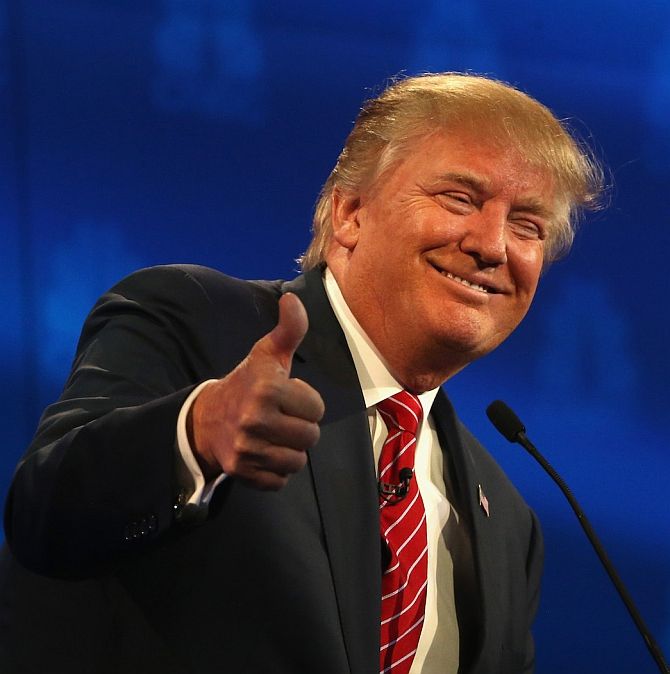 The Indo-United States relations will become an important part of President-elect Donald Trump’s diplomacy to ‘suppress’ China, but it will have limited impact on Beijing as New Delhi may not accept a ‘quasi-alliance’ with Washington, DC to retain its independent foreign policy, the Chinese state media commented on Tuesday.
The Indo-United States relations will become an important part of President-elect Donald Trump’s diplomacy to ‘suppress’ China, but it will have limited impact on Beijing as New Delhi may not accept a ‘quasi-alliance’ with Washington, DC to retain its independent foreign policy, the Chinese state media commented on Tuesday.
'US-Indian relations will become an important part of Trump’s diplomacy. With the purpose of stabilising the external situation and straightening out problems at home, the Trump administration will seek an improving relationship with India,’ an article in the state-run Global Times said on Tuesday.
'However, due to its own domestic problems, India can only play a limited role in assisting the US in solving headaches, thus the Trump administration will not put US-Indian relations in a very important position, and its enthusiasm for building a quasi-alliance with India will decrease,’ it said.
'As a global power sticking to non-alignment diplomacy, India probably will not set a goal of allying with the US in suppressing China as the US hopes,’ the article said, assessing policies options for Trump after he takes over the presidency next month said.
'Therefore, there are unbridgeable differences between American intentions for developing a close relationship with India to balance China and India’s concept of developing independent diplomacy toward the US and China,’ the article titled Trump may be cool to alliance with Delhi said.
'In other words, the US attempts of establishing a quasi-alliance with India to restrict China may not be accepted by India as the country owns an independent diplomatic tradition,’ it said.
When dealing with global challenges such as climate change, nuclear proliferation and terrorism, the US may require India to make greater contributions to specific fields which only the US is concerned about, it said.
'This will reduce India’s trust in the US, and weaken the basis for deepening bilateral cooperation to the level the US looks forward to,’ it said.
'To sum up, US-Indian relations during Trump’s term will have a limited impact on China. The intensive US-India security cooperation during the Obama administration will be changed due to Trump’s adjustment in diplomacy, easing off the pressure on China,’ it said.
'Besides, the prospect of US-Indian cooperation in trade is not optimistic, and it will only exert a limited effect on China’s influence on regional trade,’ it said.
Chinese official media began attacking Trump after his tweets on Monday questioning for the first time after his election, China’s currency devaluation and the Beijing’s claims on South China Sea.
'Trump’s reckless remarks against a major power (China) show his lack of experience in diplomacy. He may have overestimated the power of the US. He may have already been obsessed with the power he is about to have a grip on, and wishes the whole world should follow his lead,’ an editorial in the same newspaper said.
'He may also believe that if China, the biggest power after the US, is awed by Washington, it will solve all other problems. No matter what Trump thinks, China must be determined to upset his unreasonable requests at his early time in office, and fight back if his moves harm China’s interests, regardless of the consequences to the dynamics of the Sino-US relationship,’ it said.
'If China behaves soft-heartedly for the greater good of the bilateral ties, it will only embolden Trump to be more aggressive,’ it said.
‘Trump’s China-bashing tweet is just a cover for his real intent, which is to treat China as a fat lamb and cut a piece of meat off it. Trump wants to revive US economy, but he knows that his country is not as competitive as it used to be. He is trying to pillage other countries for the prosperity of the US,’ it said.
‘China should brace itself for the possible fluctuations of the Sino-US relationship after Trump is sworn in. We must confront Trump’s provocations head-on, and make sure he won’t take advantage of China at the beginning of his tenure. This initial period will set the foundation for the Sino-US relationship in the next four years,’ it said.










More from rediff